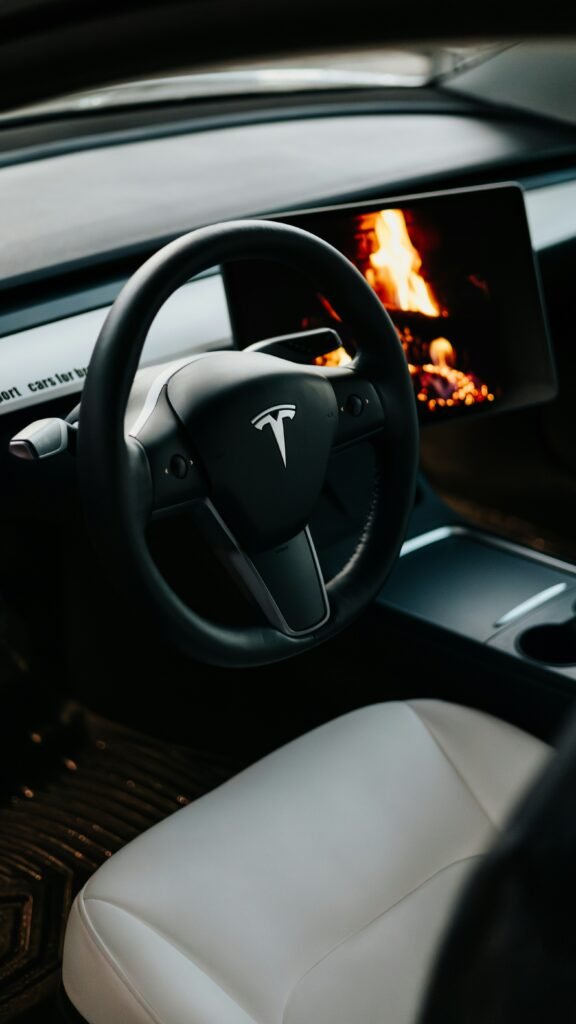Looks like you’re curious about the biggest hiccup in hopping aboard the electric car revolution. It’s not all smooth sailing—or should we say driving—when it comes to these eco-friendly vehicles. Even though they’re fabulous for reducing our carbon footprint and saving money on gas in the long run, they come with their own set of challenges. The one issue that stands out, sparking countless conversations and turning heads, is the current state of battery technology. Yes, it’s what gives these cars their quiet, emissions-free power, but it’s also their Achilles’ heel. Let’s get into why that’s the case and what it means for you and your dream of cruising down the highway in an electric ride. Electric cars have been lauded for their potential to revolutionize the automotive industry, offering a cleaner alternative to traditional internal combustion engine vehicles. However, despite their benefits, electric vehicles (EVs) are not without their challenges. Let’s dive into the main issues you might face with electric cars, ranging from battery problems to public perception.
Battery Issues
Limited Range on a Single Charge
One of the most talked-about issues with electric cars is their limited range. You might find that on a single charge, your EV can’t take you as far as a tank of gas would. This can be particularly concerning for long-distance travel or if you don’t have easy access to charging stations.
Long Charging Times
Unlike the quick process of refueling a gas car, charging an electric vehicle can be a time-consuming affair. Depending on your EV and the type of charger you’re using, it could take anywhere from 30 minutes to several hours to get a full charge. This can be a significant inconvenience if you’re in a hurry or don’t have a home charging setup.
Battery Life and Degradation
Like the battery in your smartphone, the one in your electric car won’t last forever. Over time and with repeated charging cycles, the battery’s capacity to hold a charge degrades, which means your range on a full charge diminishes. This is a key concern for potential buyers, worried about the longevity and eventual replacement costs of the battery.
Limited Availability of Fast-Charging Stations
Fast-charging stations can mitigate some of the inconvenience of long charging times, but their availability is still limited. This scarcity can be particularly felt on long trips or in more rural areas, complicating travel plans and adding to the adoption resistance.
Environmental Impact of Battery Production and Disposal
While electric cars are celebrated for their reduced emissions during operation, the environmental impact of producing and disposing of their batteries is a concern. The extraction of materials like lithium, cobalt, and nickel has significant environmental and human rights implications, and the recycling or disposal of batteries poses its own challenges.
High Initial Purchase Price
Comparison to Internal Combination Engine Vehicles
Initially, electric cars can be more expensive than their gasoline counterparts. This higher upfront cost can deter potential buyers, even when considering the lower operating costs over the vehicle’s lifetime.
Impact of Government Incentives and Subsidies
To make electric cars more appealing, many governments offer incentives and subsidies. These can significantly reduce the purchase price, but they’re subject to change based on political climates and budget priorities, adding a layer of uncertainty for buyers.
Costs of Batteries
A major factor in the high price of electric vehicles is the cost of their batteries. However, as technology advances and production scales up, prices have been gradually decreasing, potentially making EVs more competitive in the future.
Future Price Predictions
Experts predict that the prices of electric cars will continue to decrease as technology improves and production increases. This could lead to price parity with gasoline vehicles, making them a more viable option for a broader audience.

Charging Infrastructure
Geographical Disparities in Charging Station Availability
There’s a noticeable disparity in charging infrastructure availability, with urban areas having a higher concentration of charging stations compared to rural areas. This uneven distribution can complicate travel and ownership for those living far from urban centers.
Urban vs Rural Availability
Urban dwellers are more likely to have access to public charging stations, whereas rural owners might face challenges finding nearby charging options. This urban-rural divide is a significant hurdle in the widespread adoption of electric vehicles.
The Role of Private vs Public Investment
The expansion of the charging infrastructure relies on both private and public investment. Private companies are rolling out charging networks, but public investment helps ensure broader and more equitable access.
Challenges in Home Charging for Apartment Dwellers
If you live in an apartment or a house without a driveway, installing a home charger might not be feasible. This can make owning an electric vehicle less convenient, as you’ll have to rely on public charging stations.
Environmental Concerns
Carbon Footprint of Electricity Generation
While EVs themselves produce no tailpipe emissions, the electricity used to charge them often comes from fossil fuels. This means that the overall environmental benefit of electric cars depends heavily on how the electricity is generated.
Sourcing and Disposal of Battery Components
The environmental impact of electric cars isn’t just about emissions. The sourcing of battery components raises concerns about the ecological and social implications of mining practices, while the end-of-life disposal of batteries poses significant environmental challenges.
Comparison to Traditional Vehicles
Despite the concerns outlined above, electric vehicles generally have a lower overall environmental impact than traditional gasoline cars, especially as the electricity grid becomes greener and battery recycling technologies improve.
Efforts to Use Renewable Energy for Charging
To maximize the environmental benefits of electric vehicles, efforts are being made to use renewable energy sources for charging. This can significantly reduce the carbon footprint of EVs, making them a truly clean alternative.

Performance Anxiety
Concerns Over Range and Reliability
Range anxiety, or the fear of running out of battery before reaching your destination or a charging station, is a common concern among potential EV buyers. Additionally, concerns about the overall reliability of electric vehicles can deter some consumers.
Weather-Related Performance Issues
Cold weather can significantly impact the range and performance of electric vehicles, as batteries are less efficient in low temperatures. This can exacerbate range anxiety, particularly in regions with harsh winters.
Perceived Lack of Power or Speed Compared to Gas Cars
There’s a misconception that electric cars lack the power or speed of gasoline cars. However, electric vehicles can offer impressive acceleration thanks to the instant torque delivered by electric motors, challenging these perceptions.
Technology and Maintenance
Availability of Qualified Service Centers
As electric vehicles become more common, the availability of qualified service centers and technicians is improving. However, in some areas, finding a place to service an EV can still be a challenge.
Cost and Complexity of Repairs
Electric vehicles have fewer moving parts than gasoline vehicles, which can mean fewer things to break down. However, when issues do arise, they can be complex and costly to repair, particularly concerning the battery and electric motor.
Software Reliability and Updates
Modern electric vehicles rely heavily on software for various functions, from battery management to in-car entertainment. Software issues can impact the usability and even the safety of the vehicle, and updates are often required to fix bugs or improve functionality.
Obsolescence of Technology
Technology in electric vehicles evolves rapidly, leading to concerns over obsolescence. New models with better features and longer range can make older models seem outdated, potentially affecting resale value.

Market Availability and Variety
Limited Selection of Models
Compared to gasoline vehicles, the selection of electric models has been limited, though this is rapidly changing. A broader variety of body styles, from sedans to SUVs and trucks, is becoming available, catering to more consumer needs.
Delay in Launch of New Models
The automotive industry is known for long development cycles, and electric vehicles are no exception. Delays in the launch of new models can be frustrating for consumers eager for the latest technology.
Market Dominance by a Few Manufacturers
A few manufacturers have dominated the electric vehicle market, which can limit options and stifle competition. However, as more companies enter the EV space, this is beginning to change.
Lack of Electric Options in Certain Vehicle Classes
Until recently, certain vehicle classes, like trucks and larger SUVs, had few or no electric options. This is starting to shift, with more manufacturers announcing plans for electric vehicles across a wider range of categories.
Policy and Incentive Uncertainty
Changes in Government Incentives
Government incentives and subsidies have been crucial in promoting electric vehicle adoption. However, these incentives can change with political climates, creating uncertainty for both manufacturers and consumers.
Regulatory Hurdles for New Technologies
The introduction of new technologies in electric vehicles often faces regulatory hurdles. These can delay the availability of innovative features and slow the adoption of electric vehicles.
International Differences in Electric Vehicle Support
Support for electric vehicles varies significantly around the world, influenced by factors like government policy, environmental priorities, and infrastructure development. This international patchwork of support can affect global adoption rates.
Dependence on Political Will
Ultimately, the future of electric vehicles heavily depends on political will. Policies that support EV adoption, from incentives to infrastructure investment, can greatly impact their viability and success.

Public Perception and Education
Misinformation About Electric Vehicles
There’s a lot of misinformation about electric vehicles, from their range and performance to their environmental impact. This can skew public perception and deter potential buyers.
Range Anxiety and Charging Concerns
Range anxiety remains a significant barrier to adoption. Public education on the real-world capabilities of EVs and the expansion of charging infrastructure can help alleviate these concerns.
Skepticism About Environmental Benefits
Some people are skeptical about the environmental benefits of electric vehicles, questioning whether they’re truly a cleaner option. Educational efforts highlighting the full lifecycle benefits of EVs can help address this skepticism.
Efforts to Increase Public Awareness and Adoption
Increasing public awareness and adoption of electric vehicles involves addressing the concerns outlined above and highlighting the benefits of EVs. From government agencies to automakers and environmental groups, various stakeholders are working to educate the public and encourage a shift towards electric transportation.
Resale Value and Depreciation
Perceived Value Over Time
The perceived value of electric vehicles over time is a concern for potential buyers worried about depreciation. Factors like battery degradation and technological obsolescence can impact resale value.
Impact of Battery Degradation on Resale
Battery degradation is a significant factor affecting the resale value of electric vehicles. However, advancements in battery technology and warranty coverage are helping to mitigate these concerns.
Comparison to Internal Combustion Engine Vehicles
When comparing the resale value of electric vehicles to internal combustion engine vehicles, it’s important to consider the total cost of ownership, including fuel savings and lower maintenance costs, which can make EVs more economically attractive in the long term.

Market Trends and Predictions for Electric Vehicle Resale Values
Market trends indicate improving resale values for electric vehicles as battery technology advances, public perception shifts, and demand for used EVs grows. Predictions for the future are optimistic, with expectations of increased parity with gasoline vehicles.
In conclusion, while electric cars face several significant challenges, from battery issues to public perception, the landscape is changing rapidly. Advancements in technology, increasing public and private investment in infrastructure, and evolving market dynamics are addressing many of these concerns. As the world moves towards a more sustainable future, the role of electric vehicles is undoubtedly poised to grow, making them an increasingly viable and attractive option for consumers.
